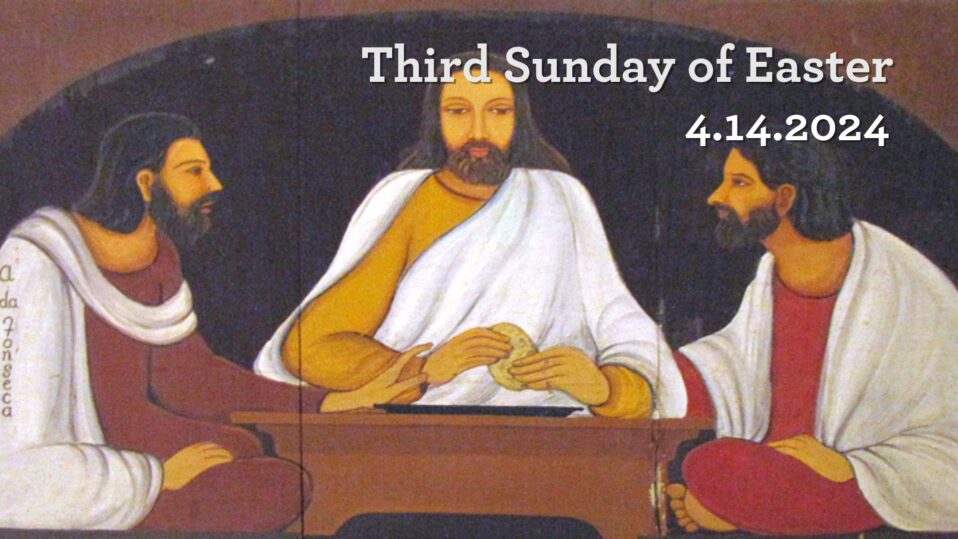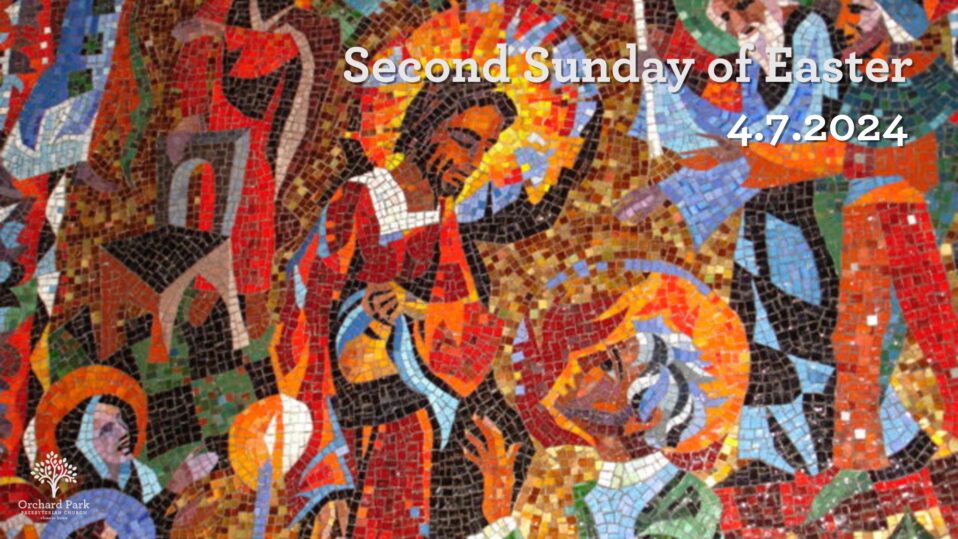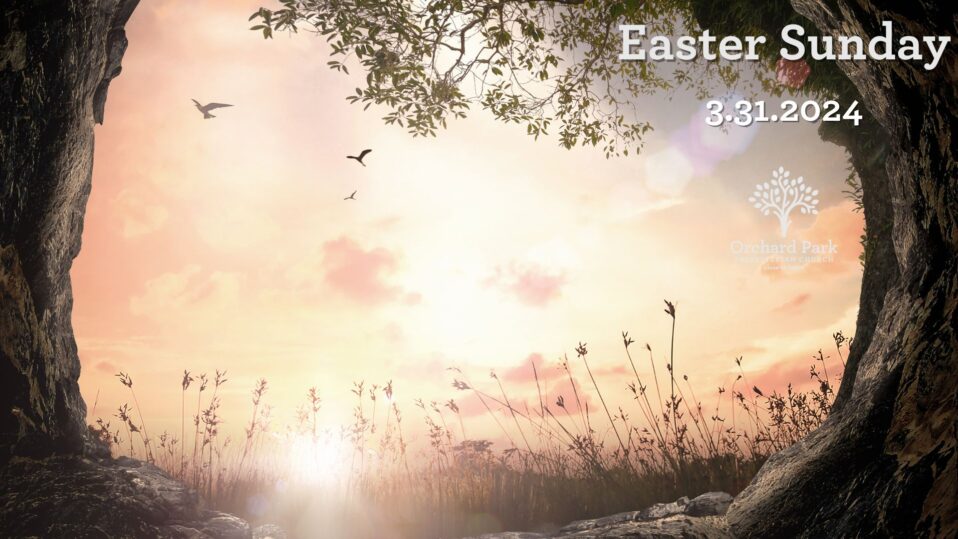There is a one word line in the movie The Princess Bride, that the character Vizzini says. He says: “inconceivable!” Eventually his friend says, you keep saying that word, but I don’t think you know what it means. Vizzini clearly does not know what the word means and finds himself in situations that are conceivable. We use words all of the time without fully understanding their meaning. Take for example the word Blessed. Have you ever heard someone say they are blessed by their wealth, or by their children’s education, or by their athletic ability? What they really mean is that they are fortunate – and fortunate is based on achievements, wealth and possessions.
Being blessed and being fortunate are not the same thing. A blessing comes from God, a fortune comes from the world. Being fortunate is neither bad or good, its value lies in this world and has nothing to do with the Kingdom of God. Being blessed however has everything to do with the kingdom of God. The confirmation class and I were talking about the kingdom of God a couple of weeks ago, and as we were discussing the concept and I was trying to explain it, that it’s a strange idea isn’t it? How do you talk to young people about the kingdom of God when they are interested in how they are going to acquire stuff in life, like a house and a car and maybe a boat? How do you talk about what happiness really means, when all of social media and all of their friends look pretty darn happy with their latest purchases?
We know logically, that happiness does not come from fame or fortune, but we often have to learn that lesson through challenging times of disappoint and discouragement to learn that true happiness cannot be bought, nor found through earthly goods.
When Jesus preached the sermon on the mound and began with a preamble we have named the Beatitudes, he provides of list of times when people will be blessed or feeling happiness in the kingdom of heaven. Each blessing is absurd – you could even say, inconceivable.
The beatitudes are not rules or ways of being. They are not instructions. Jesus isn’t telling us to go be meek or hungry or mourn, but rather the beatitudes are telling us that when you find yourself doubting, mourning, empty, that is when you are in a place to put your trust in God and when you put your trust in God, you are blessed.
Point number one, the Beatitudes are about how God engages with humanity and trusting in him.
Point number two, the Beatitudes are not only written for you as an individual, but maybe more importantly, they are written for a community. It’s an idyllic picture of what the world should look like it if it mirrored the Kingdom of God. The fruits of discipleship, come about when people realize that there is more to life than the values held in high esteem by the world, rather the fruits of discipleship come about when you put your trust in God above all else. Saying you trust in God and living like you trust in God are two completely different things – Do you trust that you will see the kingdom of God if you are poor in spirit? Or would you rather not find out?
There is an old story about a man who falls off a cliff. He’s going to die, but he throws out a hand and miraculously catches a branch:
“Is anyone up there?”
“Yes.”
“Who are you?”
“I am God, and I am going to save you.”
“Wonderful. What should I do?”
“Let go of the branch.”
(Pause.) “Is anybody else up there?”
The first question we ask ministers and church officers when they are being installed is do you put your trust in Jesus Christ and claim him as Lord over all the church. Discipleship comes about when the church community both collectively and as individuals says we trust in God even when we are grieving, doubting, struggling, being persecuted for our beliefs, trying to be peacemakers, and striving to be pure at heart. When we put our trust in God, we find we are able to do what TS Eliot says, to teach us to care and not to care, teach us to sit still.
When we trust in God we learn not hold lightly the things for which we do have control and to stand firmly on the ground of faith. When we trust in God we learn that purpose of discipleship is not about perfection, it is about adoration. When we trust in God we learn to make decisions that not for ourselves but for justice, for the oppressed and for the voiceless. When we trust in God we have a gift, called joy.
The Beatitudes are a blueprint of action, a plan for behavior, and a reorientation of life for the followers of Jesus, who are blessed lovers of God. The Beatitudes are a litany of characteristics describing the citizens of heaven—the redeemed, the saved, the saints of God (Rick Morley).
Priest Rick Morley wrote,
What Jesus taught is that we are meant to be the poor in spirit, full of humility and wonder (and aware of our dependence on God). We are to be willingly, emotionally exposed and open enough to fully mourn, mourning the state of the world, the failures and losses of our brothers and sisters, and the loss of our own innocence. We are the ones who are to be meek, not seeking power by dominating others but attaining true power, which is only found in the weakness and vulnerability of the cross of Christ. We are to hunger and thirst for righteousness, yearning for what is right, holy, and good from the deepest part of our souls. We are to be merciful not ruthless, pure in heart not corrupted, peacemakers not instigators, the persecuted instead of the persecutors, and reviled and despised not honored and exalted.
This is the picture of what the church is supposed to look like in full Technicolor. Jesus was teaching what God is all about, what he himself is all about, and what he wants us and every person on the face of the planet to be about. And what becomes of such people who live by such attitude and manner? What accompanies the blessings?
The blessing is the kingdom of God, in heaven and on earth. The blessing is keeping company with God and with the communion of saints, those for whom, as is beautifully stated in the Book of Revelation, “God will wipe every tear from their eyes. Death will be no more; mourning and crying and pain will be no more, for the first things have passed away” (Revelation 21:4).
We are not alone, not now or ever.
This is why we can go out and face the challenges set before us—because we know that God accompanies us into this world and promises to use us, to live through us, like those before us, to further God’s purposes.
In Christ alone my hope is found
He is my light, my strength, my song
This cornerstone, this solid ground
Firm through the fiercest drought and storm
What heights of love, what depths of peace
When fears are stilled, when strivings cease
My comforter, my all in all
Here in the love of Christ I stand
Amen,
Rev. Dr. Shelly Wood



